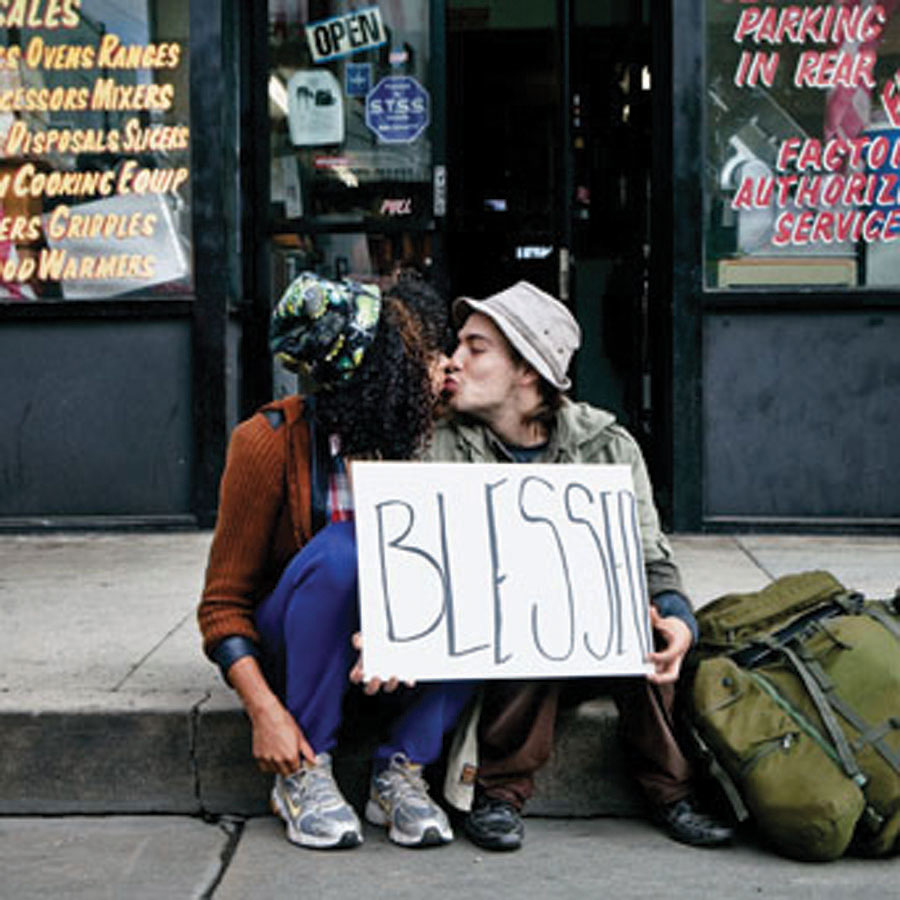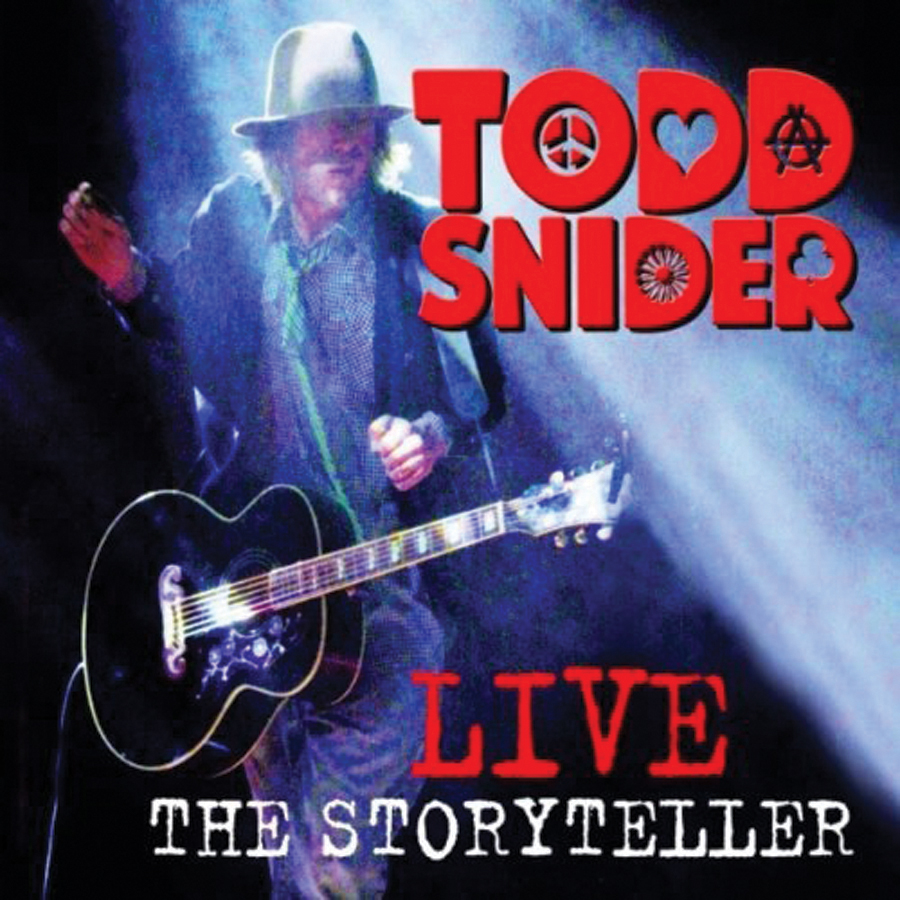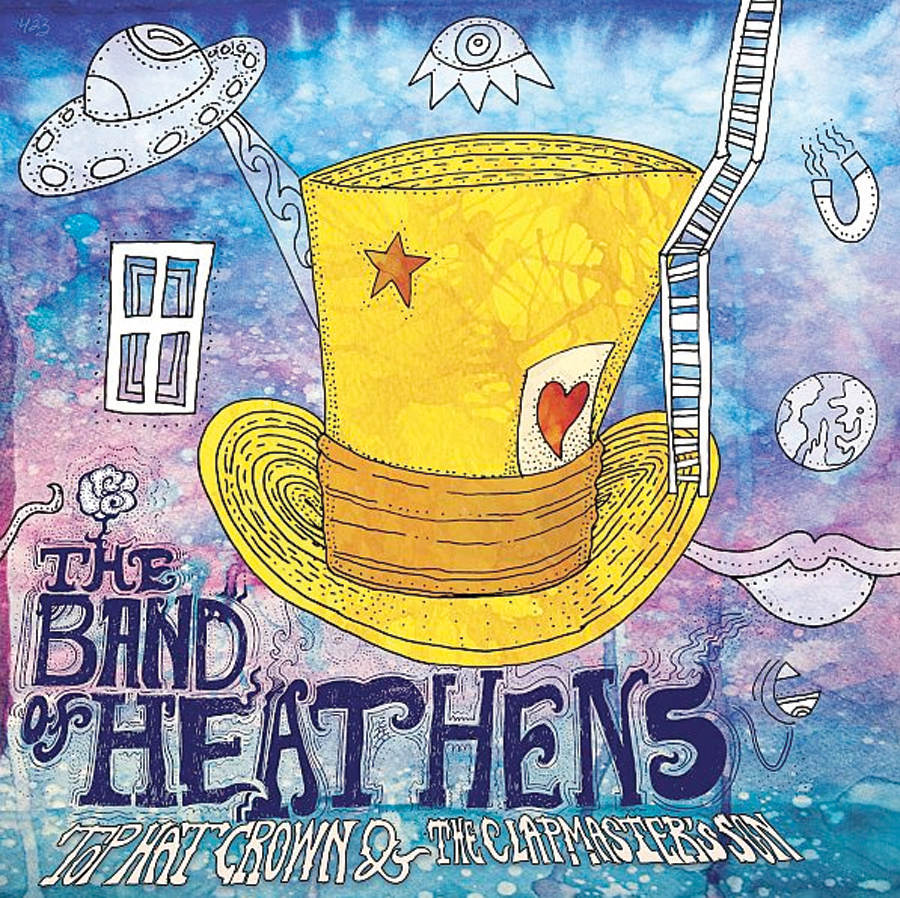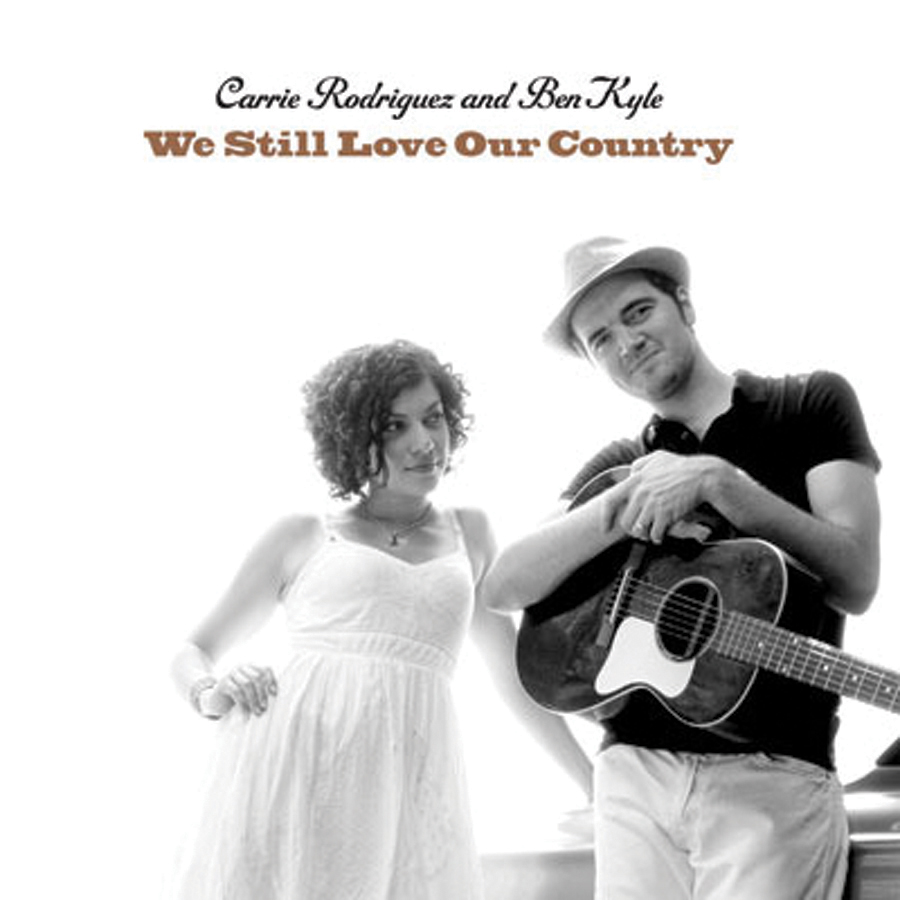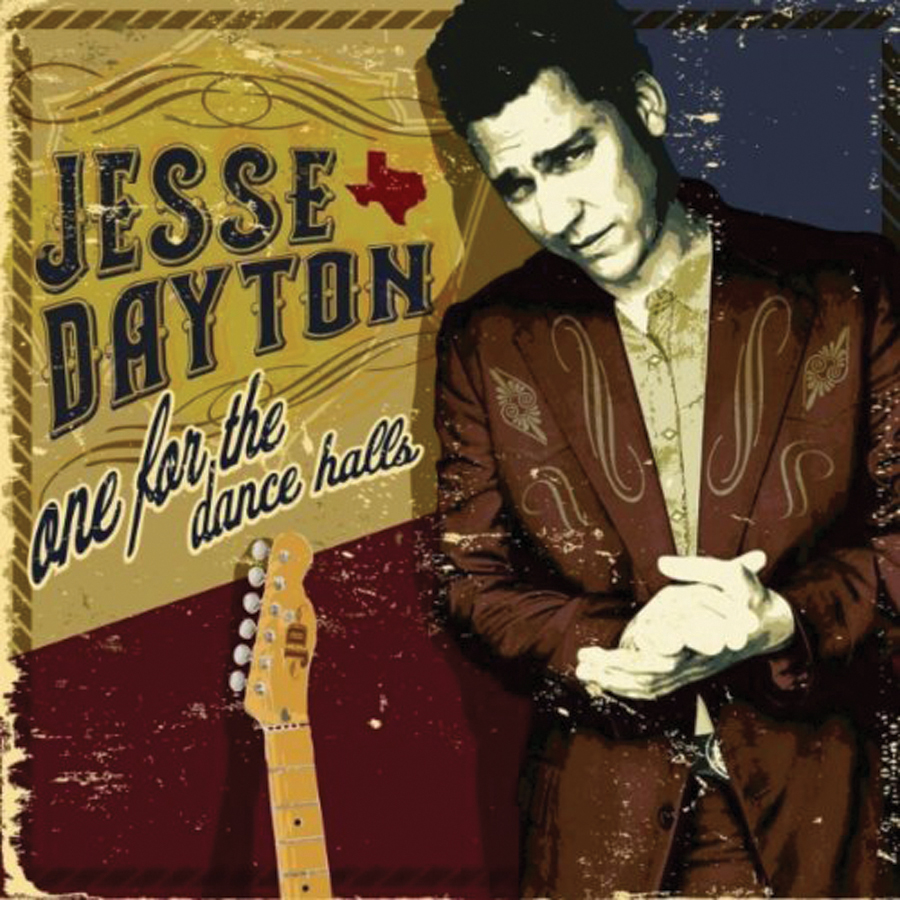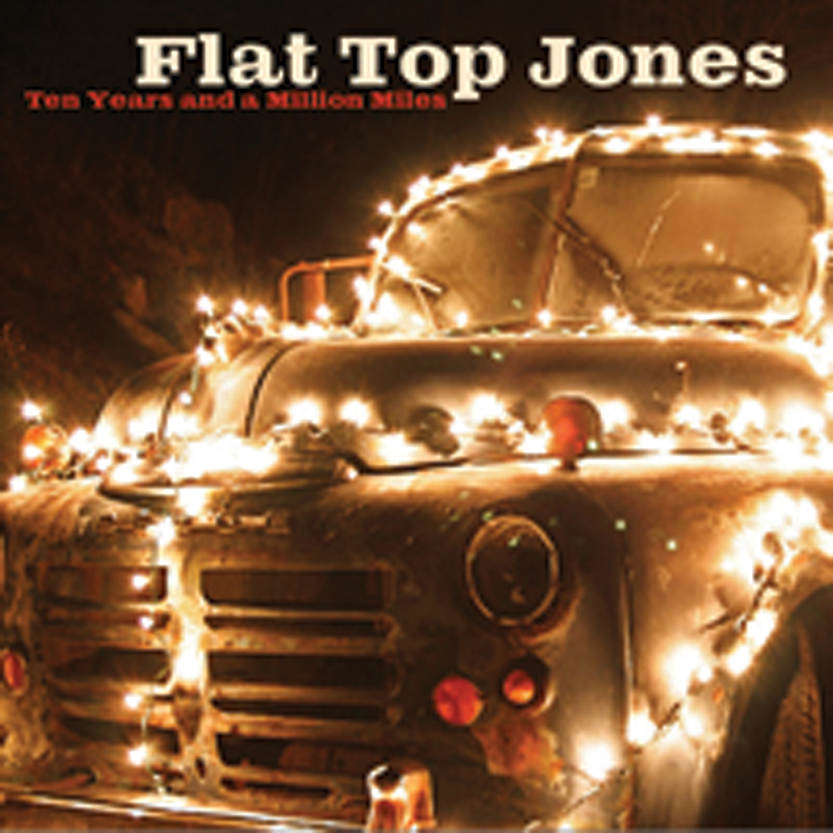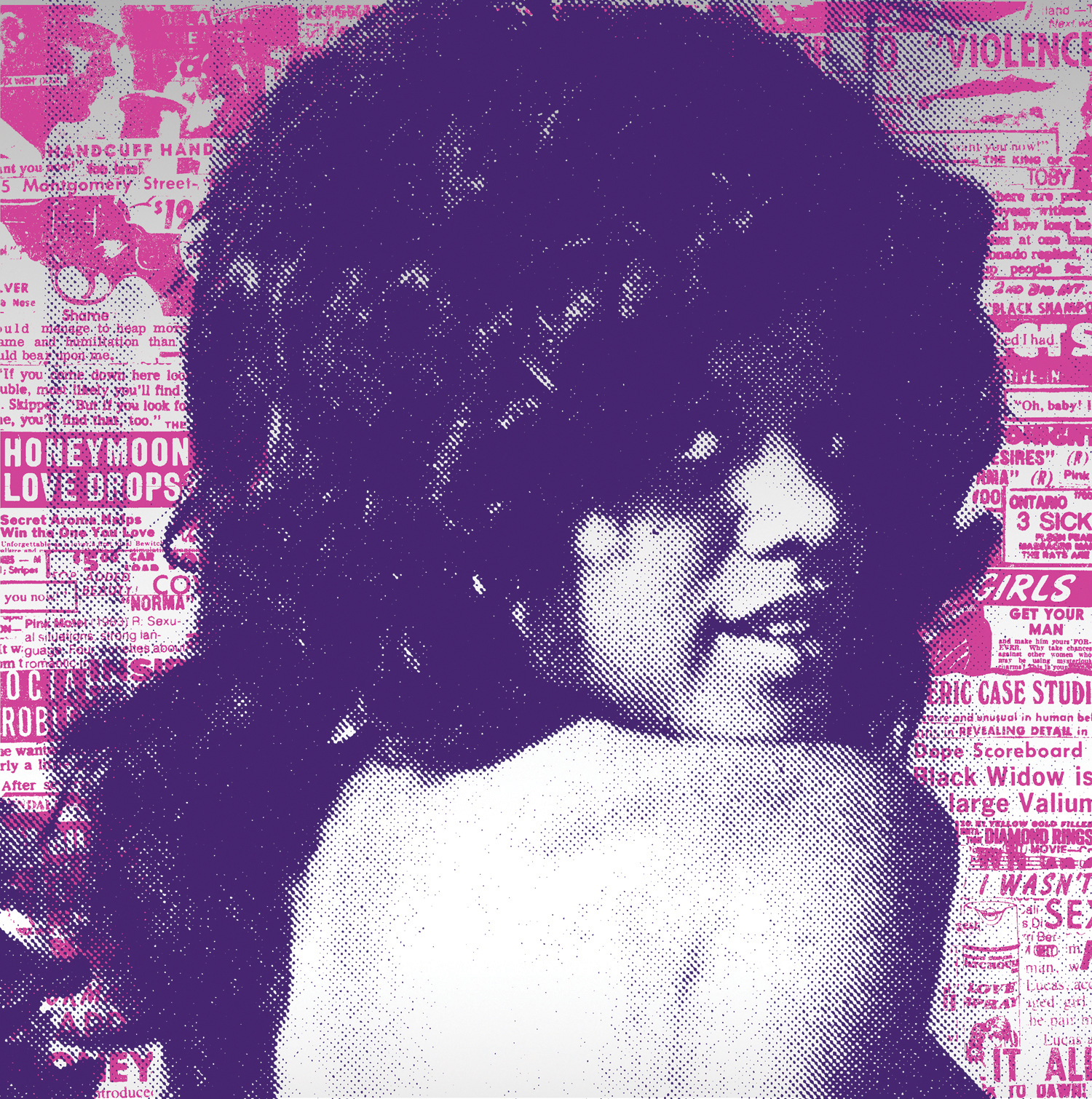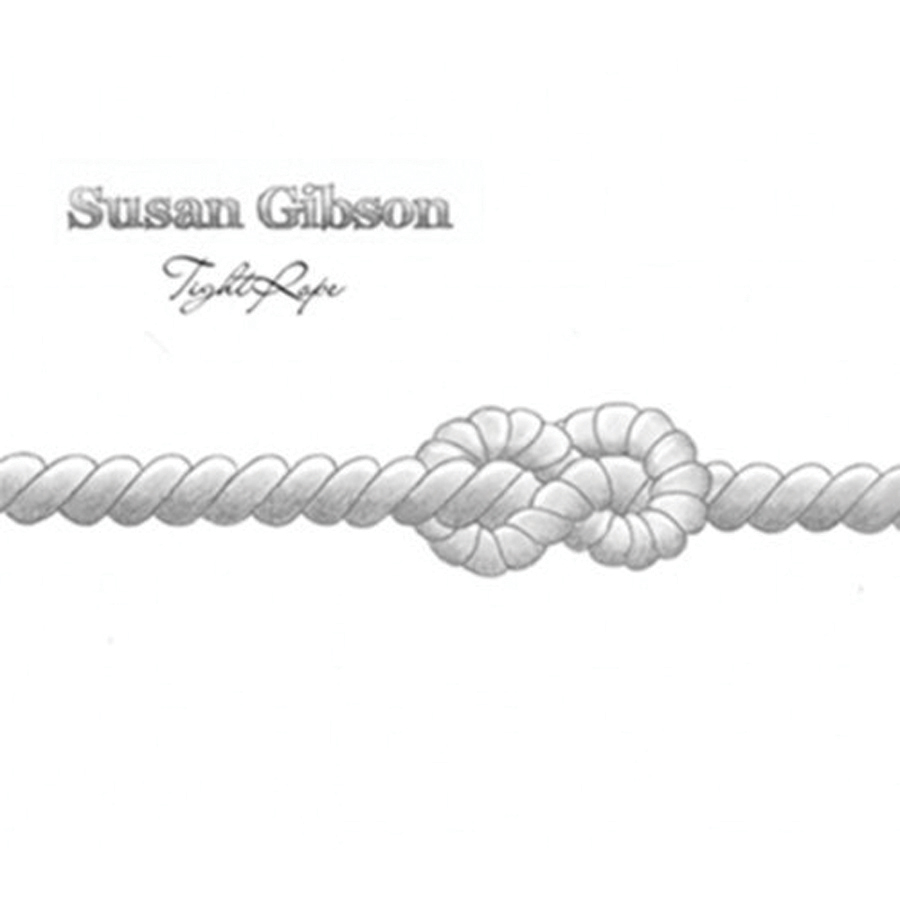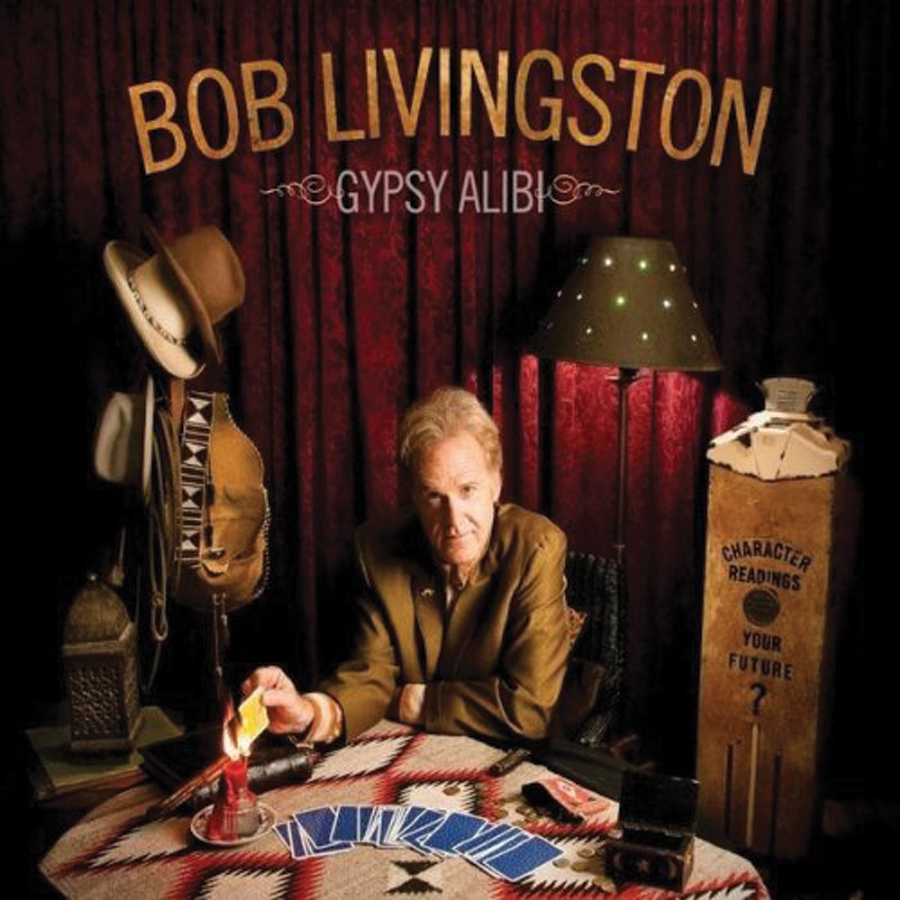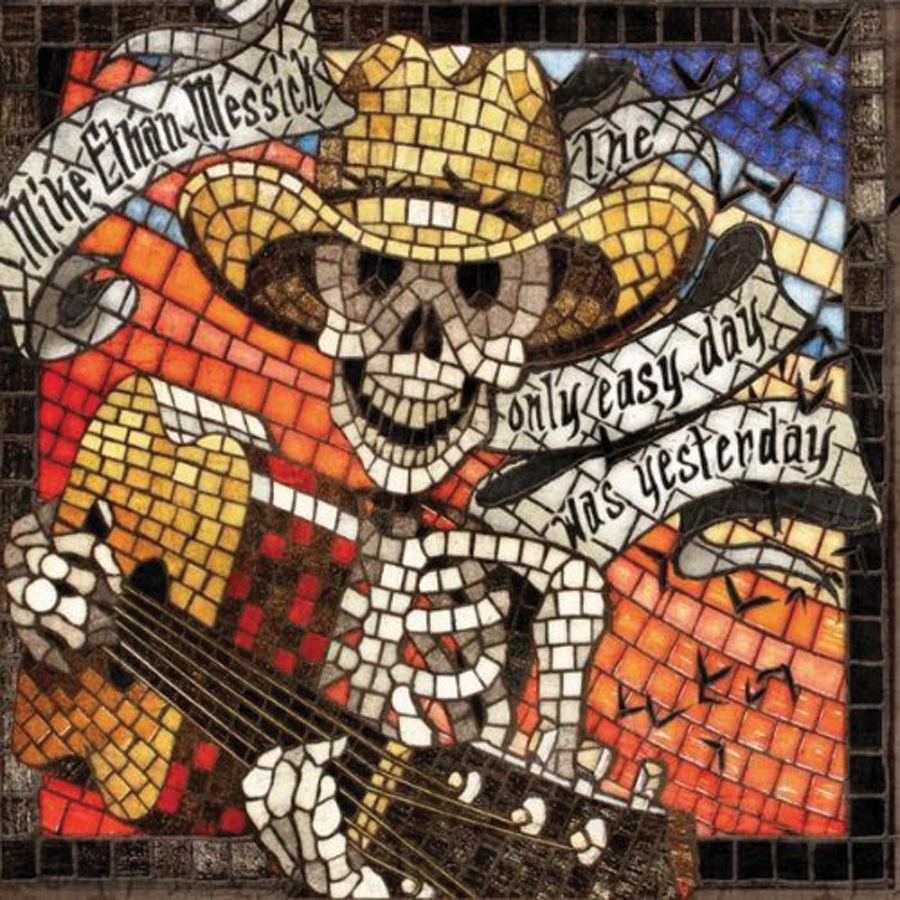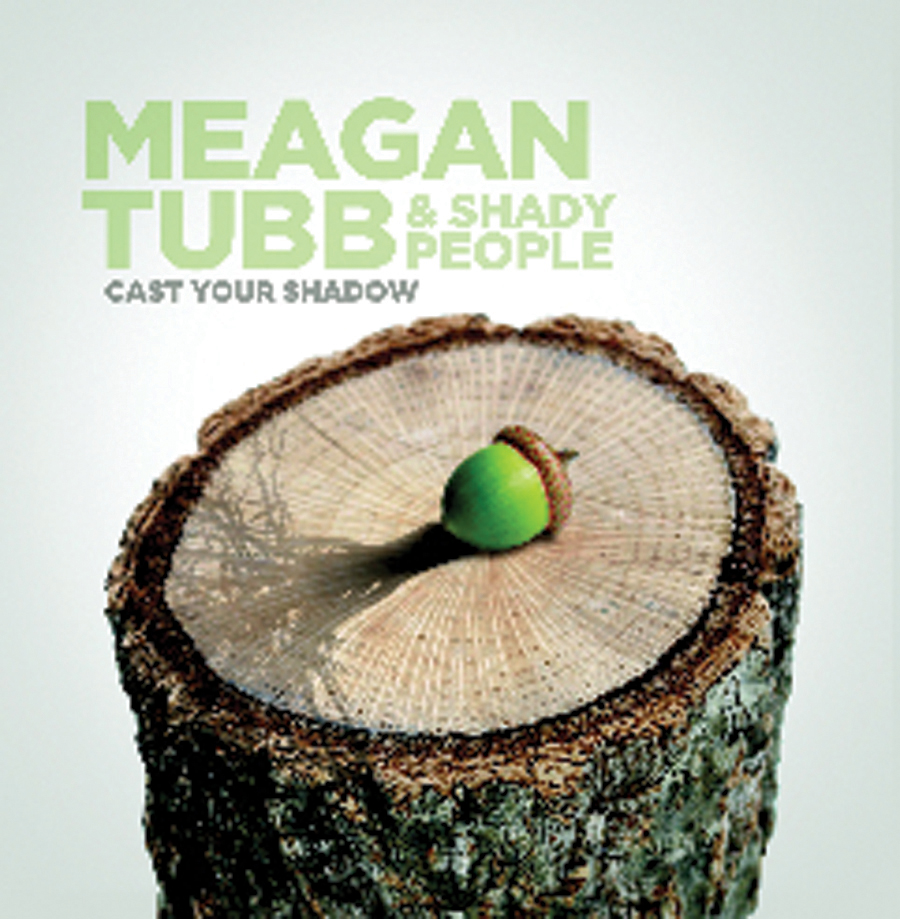

|
|
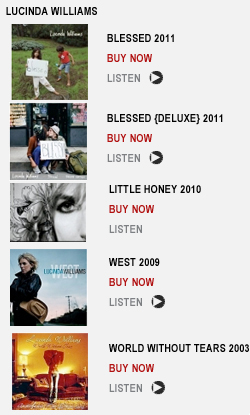 |
| BOOK REVIEWS Terri Hendrix Adam Carroll and Stayton Bonner |
|
|
Smack in the middle of Lucinda Williams’ last album, 2008’s Little Honey, Elvis Costello popped up for a duet with Lu on a song called “Jailhouse Tears.” Paste magazine declared it one of the best country/rock duets of all time, apparently tactfully omitting the qualifier, “… sung by two drunken, randy alley cats rutting in the middle of a train yard.” Different strokes for different folks and all, but it was pretty much the low point on an atypically more miss-than-hit album that also found Williams singing about having her lover’s “honey all over my tummy” and covering an AC/DC song that she later admitted she’d never heard before it was suggested to her in the studio. Regardless, that’s all water under the bridge, because Costello shows up again on Williams’ new Blessed, this time not to sing but rather to throw down one of the most ferociously thrilling guitar tracks that Lucinda’s ever gone head to head with on record. And both vocally and lyrically, Williams definitely rises to the occasion on “Seeing Black,” a seething wail of frustration in the wake of a suicide [reportedly, that of fellow songwriter, Vic Chesnutt.]
|
Lisa Morales
|
As poor consolations go, “it’s an honor just to be nominated” doesn’t hold a candle to “well, at least you got a song out of it.” Even in a bum economy, great art in exchange for a soul-gutting emotional apocalypse is a lousy bargain, and Lisa Morales would have to be a true masochist to want more of whatever hell she went through to come up with Beautiful Mistake. As far as making lemonade out of lemons goes, though, this solo debut from one half of San Antonio’s Sisters Morales is a triumph. According to the bio on her website, the songs were born out of Morales’ struggle to come to grips with the death of her mother; but even a casual listen suggests an evidentally devastating rift on a romantic relationship front as well. The double-whammy loss of both mother and lover is addressed point blank in “They’re Gone” (“They left me like a hurricane/hollowed out a part of me within”), though in the aftermath she finds some solace in knowing that at least her mother cared. It might be wrong to brand Beautiful Mistake an actual “divorce” or even “break-up” album, as Morales herself has opted not to, but suffice it to say that Dylan’s Blood on the Tracks plays like a honeymoon suite compared to the emotional bloodletting going on in songs like “You Forgot to Love Me” and “ Don’t Want to Hear What You Have to Say.” All’s fair in this love war, though, as Morales actually directs many of her hardest blows on herself (“I have grown apart from you/Accused you of what I do,” she confesses on the stunning opener, “I Am the Weakest”); and elsewhere, songs like the bittersweet title track, the lusty “I Wanna Be in Love” and the defiantly optimistic “Looking for Something Beautiful” all hint at a slow healing already underway. Even at its most beautifully distraught, though, Beautiful Mistake positively soars as a showcase for Morales’ voice, which is as strong and frequently flat-out dazzling throughout the album as her melodies. Having never followed Sisters Morales’ career too closely, I can’t really comment on how much or how little of a departure this is for her; but even as an introduction, it’s a revelation — and as heart-rending and riveting a record that you’re likely to hear from any serious singer-songwriter this year. — RICHARD SKANSE
|
Todd Snider
|
As anyone who’s ever seen him play live can attest to, Todd Snider backs his remarkable songwriting with a great — and funny — stage presence. A lot of that magic is built right into his songs and can be heard on his studio albums, but to get the full package, you really have to be there. Or you need the next best thing: The Storyteller, featuring two CDs-worth of charming, humble and humorous Todd Snider at his live best. It’s his second official live album, and picks up where 2003’s Near Truths and Hotel Rooms left off, with several songs from his most recent studio albums, The Excitement Plan, The Devil You Know, East Nashville Skyline and Peace Queer.
|
The Band of Heathens
|
Colin Brooks, Ed Jurdi and Gordy Quist are the kind of scarily talented musicians who can walk into a studio and play just about any instrument in it, plus sing harmonies so tight, you’d think they were siblings. That’s why they clicked so well when they joined forces as the Band of Heathens, and why, aided by the rhythm section of John Chipman on drums and Seth Whitney on bass (and both on vocals), they’ve morphed from a really good group to a great one. Top Hat Crown & the Clapmaster’s Son continues their evolution from a band that sounded like the Band to a band that barely evokes the comparison, except in musical versatility. This time out, guided by producer George Reiff, they jump into easy, Rhodes-piano-fueled funk right off the bat with “Medicine Man” and keep it up with “Enough.” They also seem to be getting even more soulful with age — and more adventurous, as evidenced on “Should Have Known” and the slightly psychedelicized, soul-falsettoed “I Ain’t Running.” The song that captivates most here is “Gravity,” with a fabulous harmony break and some Deodato-like keyboards, but the a cappella vocals on the bluesy “Hurricane” are also damned fine. The mandolin-forward closer, “Gris Gris Satchel,” may be the rootsiest of this eclectic bunch, which contains only one disappointment, the semi-dated-sounding “Free Again.” But that’s a minor complaint on an otherwise very strong release. — LYNNE MARGOLIS
|
Carrie Rodriguez and Ben Kyle
|
We Still Love Our Country finds Carrie Rodriguez teaming up with Ben Kyle, the Belfast-born frontman of the Midwestern alt-country band Romantica, for an album of duets that hark back to the classic country pairings of Loretta and Conway and Dolly and Porter. Most of the tunes are covers, but they make them all their own. Towns Van Zandt’s “If I Needed You” sounds as melancholy as the original; John Prine’s “Unwed Fathers” is delivered with beautiful harmonies that temper the lyric’s bitter irony; and “Love Hurts” is taken at a somber tempo with aching harmony vocals that’ll make grown men cry. The two originals here as just as good as the oldies. Kyle’s “Your Lonely Heart” is an optimistic love song suggesting a one-night stand might lead to a life-long love. It’s got a catchy melody with Rodriguez adding some sprightly fiddle to the mix. And the Rodriguez/Kyle co-write, “Fire Alarm,” is a flirtatious duet with a playful lyric and, thanks to their vocals, plenty of sizzle. — J. POET
|
Jesse Dayton
|
Austin continues to serve notice of its honky-tonk-capitol-of-the-world status with strong releases by Jesse Dayton and Flat Top Jones. Dayton’s One for the Dancehalls weighs in with 10 two-steppers based around a crisp, updated yet genuine honky-tonk sound. Flat Top Jones’ Ten Years and a Million Miles, on the other hand, delivers a bit more retro, old-timey tonk.
|
Black Joe Lewis & The Honeybears
|
Black Joe Lewis & the Honeybears don’t do sweet soul music. They do down ‘n’ dirty, punky funk, of the in-yo’-face variety. That’s partly because Lewis isn’t exactly a nuanced vocalist; he’s more of a shouter than a singer – and on some cuts (like Ivory Joe Hunter’s “Since I Met You Baby”), his voice is torn and frayed. But he’s clearly going for emotion (or maybe just motion), not finesse. For what this band wants to be — a party-starting hybrid of Muscle Shoals and Motown, Memphis and Clarksdale (as redirected through the lips and hips of a certain rooster-strutting British icon) and maybe a little of the grittily elemental, rubber- and rust-belt Black Keys — it mostly works. The transistorized guitar and phat bass of the title tune come off like chopped ‘n’ screwed R&B; “Ballad of Jimmy Tanks” even features some Earth, Wind & Fire-style vocals (and those horns … they’re the heart of this soul). But if originality matters more than the vibe, better step back in time. Because if “Booty City” doesn’t remind you Edwin Starr’s “25 Miles,” and you don’t hear George Thorogood channeling John Lee Hooker in “Mustang Ranch,” you need to clean your ears.
|
Susan Gibson
|
Go ahead and judge Tight Rope by its unapologetically Spartan cover; if it’s fancy frills and showy instrumental chops you’re after, move right along. Despite having penned one of the biggest country hits of the past, oh, quarter century (the Dixie Chicks’ career-launching “Wide Open Spaces”), singer-songwriter Susan Gibson has never been much for flash, either onstage or on record. But even by her own down-home standards, Tight Rope — Gibson’s fourth solo release since leaving the Groobees a decade ago — is as bare-bones and fuss-free as a bedroom demo. Sure, producer Gabe Rhodes contributes a light sprinkling of subtle bells and whistles (from banjo, mandolin and melodica to “chair squeaks” and even a slinky), but by and large, it’s the simple strum, strum, strum of Gibson’s acoustic guitar and the warm, casual rasp of her voice that’s left schlepping the full weight of the album. Fortunately, all 10 of the songs here come equipped with the kind of easy carry melodic hooks that suggest Gibson’s well of potential chart hits is far from dry. Lyrically, she stays mostly in the tried-and-true comfort zones of relationship-related themes, albeit with an unerring flair for the kind of keen insight displayed so effectively on the sweetly poignant “A Stray.” When Gibson sings, “I can’t tie you down, but I want you to stay/I need you around, but you were always a stray,” it’s not the species of the subject (cat? dog? man?) that matters; it’s that universally relatable ache of coming to terms with a love that doesn’t always give as good as it gets. — RICHARD SKANSE
|
Buddy Miller
|
The steel guitar has a natural ache in its tone, an otherworldly quality, like the sound of a widow’s sorrow or a whispering wind. And Greg Leisz is one of the best at painting ethereal landscapes with its silver strings. Buddy Miller wisely puts Leisz’s elegant steel in the forefront throughout The Majestic Silver Strings, the name of both his new album and the band on it, which also includes fellow guitarist/vocalist Marc Ribot and six-stringer Bill Frisell. Accompanied by bassist Dennis Crouch and drummer Jay Bellerose, and an A-list cast of guest singers, Miller meanders through a mix of original and familiar-yet-reinvented tunes, including old westerns like “Cattle Call” and “Bury Me Not on the Lone Prairie.” As sung by Chocolate Genius, the Roger Miller (no relation) hit “Dang Me” shape-shifts into a folk lament; Miller’s version of George Jones’ “Why Baby Why” twangs; and the instrumental “Freight Train” strides, rather than chugs. Shawn Colvin’s beautiful “That’s the Way Love Goes” is a centerpiece; Lee Ann Womack’s renditions of “Meds” and “Return to Me” are revelations. Patty Griffin and Ann McCrary (of the McCrary Sisters), each share sublime duets with Miller, but he saves his favorite go-to girl for last — Miller and his wife, Julie, share vocals on her composition with Frisell, “God’s Wing’ed Horse.” It’s heaven. — LYNNE MARGOLIS
|
Bob Livingston
|
As a charter member of the Lost Gozno Band, Bob Livingston’s logged as many miles on the cosmic-cowboy highway as any veteran of the wild-and-wooly early ’70s Austin country scene still standing (or, for that matter, sitting center stage at some fancy-pants theater with a wine bar). He’s also got his own fair share of that old-time Lubbock rock ’n’ roll, a la Buddy Holly and the hard-charging Joe Ely Band. But no matter how many times he’s played (be it as sideman or frontman) the outlaw honky-tonker or rocker throughout his long career, Livingston is, at heart, an unabashedly mild-mannered folkie. Or at least, that’s the side of him that comes into clearest focus — like the floating answer in a Magic 8 Ball — on his latest solo album. Co-produced by Livingston and Lloyd Maines (with most all of the usual suspect Austin session pros associated with both men present and accounted for), Gypsy Alibi covers as much stylistic ground as both its title and Bob’s freewheeling background would suggest. The title track, buried deep on the back end, hitches a stream of carney-themed snapshots (“major domo in the spotlight/all the clowns come out at midnight”) to a delightfully surreal, piano-driven melody suggesting Randy Newman at the helm of The Band. Elsewhere, you’ll find a grade-A country weeper (“Till Death Do Us Part”), spry, Springsteeny pop (“Dance Like It’s a Holiday”), a zippy rockabilly number hot-rodded by guest guitarist Bill Kirchen (“Middle Ages Rockabilly Blues”), and even a shot of atmospheric sci-fi (“Android’s Lament”). For the most part, Livingston pulls it all off with a breezy confidence. That said, though, having a country & western swing song not only about country & western swing but called “Country & Western Swing” is a bit much — especially when the yodeling “Oklahoma Girl,” a delightful co-write with Okies John Hadley and Susan Herndon, covers similary ground without forcing the matter. But when Livingston eases up on the genre flexing and settles into his more relaxed, Kerrville Folk Festival (or listening room) singer-songwriter voice, he’s a natural charmer. The easy-loping “Ruby’s Shoes” opens the album on a note of sweetly disarming optimism (“If you’re the question/I could be the answer”), and the equally winsome “I Can’t Sleep Tonight” floats along with a pleasantly melodic vulnerability before being spirited away to India on a dreamy psychedelic coda. “Ghost of Vicksburg,” an exquisitely rendered Civil War vignette, wears its crisis-of-faith gravitas on grey sleeve with a dignity befitting a serious songwriter’s career best — which it very well may be. But the chaser, “Blind Love,” is no slouch, either. Nobody would ever mistake that ebullient little hippie ditty for any kind of swaggering outlaw country anthem; but it’s got a hook that could snare a goofy-assed grin out of the sourest redneck mother alive. — RICHARD SKANSE
|
Mike Ethan Messick
|
It’s really easy to like this sophomore outing from Austin-based singer-songwriter Mike Ethan Messick; the hard part’s nailing down exactly what it is about the album, and Messick in general, that’s so appealing. Make no mistake: there’s whole lotta good on The Only Easy Day was Yesterday, and it’s a goodness that has as much to do with Messick himself as it does with the can’t-miss supporting cast, which in addition to producer/bassist Adam Odor includes such ringers as Lloyd Maines, the Trishas and Cody Braun and David Abeyta of Reckless Kelly. There’s a satisfying meat-and-potatoes heft to Messick’s songs, which can pack a Bottle Rockets-worthy wallop (“Leave the Rest Behind,” “Nickel”) or coast at a confident cruise control down the same heart-worn highways haunted by the Drive-By Truckers at their bittersweet best (“Oldsmobile”). He can also throw down a bluesy honky-tonker with conviction (“Head Start”) and knock out melodic Americana ballads (“Miss You Like Crazy”) that sound as radio ready as anything this side of the Randy Rogers Band. But Messick’s no golden throat of a singer, and his songwriting voice, though certainly a cut above most of the stuff selling out Billy Bob’s or Texas country festivals of late, doesn’t quite distinguish itself here on the level of, say, a Ryan Bingham or Adam Carroll. That means that what ultimately seals this deal is simply the gut-instinct feeling that Messick is just plain worth pulling for. True to its hardscrabble title, The Only Easy Day Was Yesterday may not herald the arrival of the next big thing in Texas music, but it walks the walk with true grit and a blue-collar conviction that’s 100-percent bullshit free. — RICHARD SKANSE
|
Meagan Tubb & Shady People
|
Clearly, Meagan Tubb isn’t lacking in the chops, pipes or math departments, as she demonstrates on her new release, Cast Your Shadow. Tubb not only plays guitar like Susan Tedeschi and sings like a, well, ballsier Sheryl Crow, she also manages to inject words like “rhombus” in her songs without coming across as a Southern Schoolhouse Rocker.
|
Eleven Hundred Springs
|
The title of Eleven Hundred Springs’ latest, Eight the Hard Way, is testament to the band’s steady blue-collar work ethic. The Dallas-based band usually churns out new music about once every year and a half, and while the process of writing and recording may not be a simple task, fans of EHS can find ease in expecting quality music each time. A heavy dose of steel guitar and fiddle, love and love lost, cold beer and good times, true to country music roots and not some watered down version of aspiring wanna-be’s — that’s the formula that Matt the Cat (charismatic singer/guitarist Matt Hillyer) and gang (Steven Berg on bass, Arjuna Contreras on drums, Burton Lee on steel and the ever-popular Jordan Hendrix on fiddle) has stuck with the last seven albums, and Number 8 is par for that consistently good course. From the first steel and fiddle note to last, EHS proves once again how deep their Texas roots dig into the country music soil. With lines like, “Don’t sing me no sappy ballads, don’t sing about the headline news,” and “The Hag never needed a laser show,” the new “Hardcore Honkytonk” could certainly be the song that best represents EHS, their music and what they stand for. Ditto “This Ain’t the First,” which tells what happens when too much time is spent at the bars instead at home with the little lady: “D-I-V-O-R-C-E.” And then, of course, there’s “We’re From Texas,” which could easily be considered the new EHS anthem, thanks to this heaping helping of Texas-sized pride: “Say you don’t like us, just don’t get near, ’cause we’ll steal your girlfriend, kick your ass and drink all your beer.” Sometimes, with a band this damn good, nothing beats the tried and true. — SHANE JONES |

